
Arabic Catalog
This selection of books contains both Arabic learning resources as well as classic books in Arabic. To learn more about our selection, simply hover over or click on the cover. If you’re looking for a keyword or specific title, search it below!
-

Conversational Arabic Quick and Easy: Qatari Dialect
Author: Yatir Nitzany
ISBN: 9781731185990
Conversational Arabic Quick and Easy: Qatari Dialect uses Yatir Nitzany’s unique method to teach 350 core words—written only in English transliteration—so learners can rapidly form sentences and hold real conversations in Qatari Arabic without studying grammar or script
-
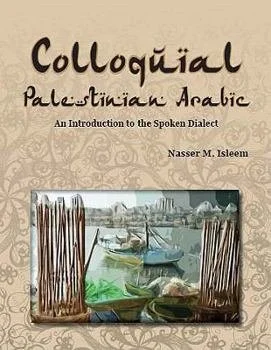
Colloquial Palestinian Arabic: An Introduction to the Spoken Dialect
Author: Nasser M. Isleem
ISBN: 9780982159538
Colloquial Palestinian Arabic teaches the spoken dialect of Palestine, focusing on grammar, vocabulary, culture, and daily use. Aimed at non-native speakers, it builds communication skills for use in Palestine and across the Arab world.
-
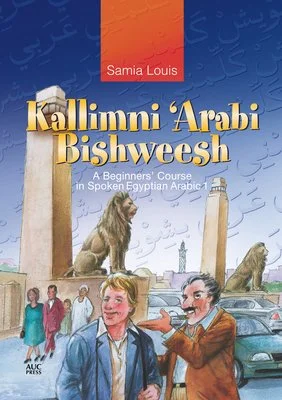
Kallimni 'Arabi Bishweesh: A Beginners' Course in Spoken Egyptian Arabic 1
Author: Samia Louis
ISBN: 9789774162206
Samia Louis’s Kallimni ‘Arabi series teaches Egyptian colloquial Arabic with a functional, real-life approach. Aligned with ACTFL standards, the books (beginner to advanced) emphasize listening and speaking, supported by native-speaker audio for dialogues and exercises.9789774162206
-
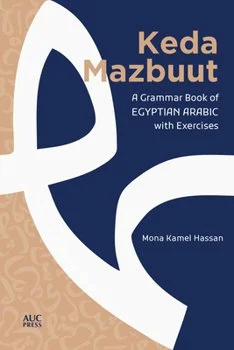
Keda Mazbuut: A Grammar Book of Egyptian Colloquial Arabic with Exercises
Author: Mona Kamel Hassan
ISBN: 9789774169236
Keda Mazbuut is a beginner’s guide to Egyptian Colloquial Arabic grammar, with 25 lessons progressing from basics to advanced structures. Written by veteran teacher Mona Hassan, it uses clear English explanations, Arabic script and transcription, plus audio to support accurate pronunciation.
-
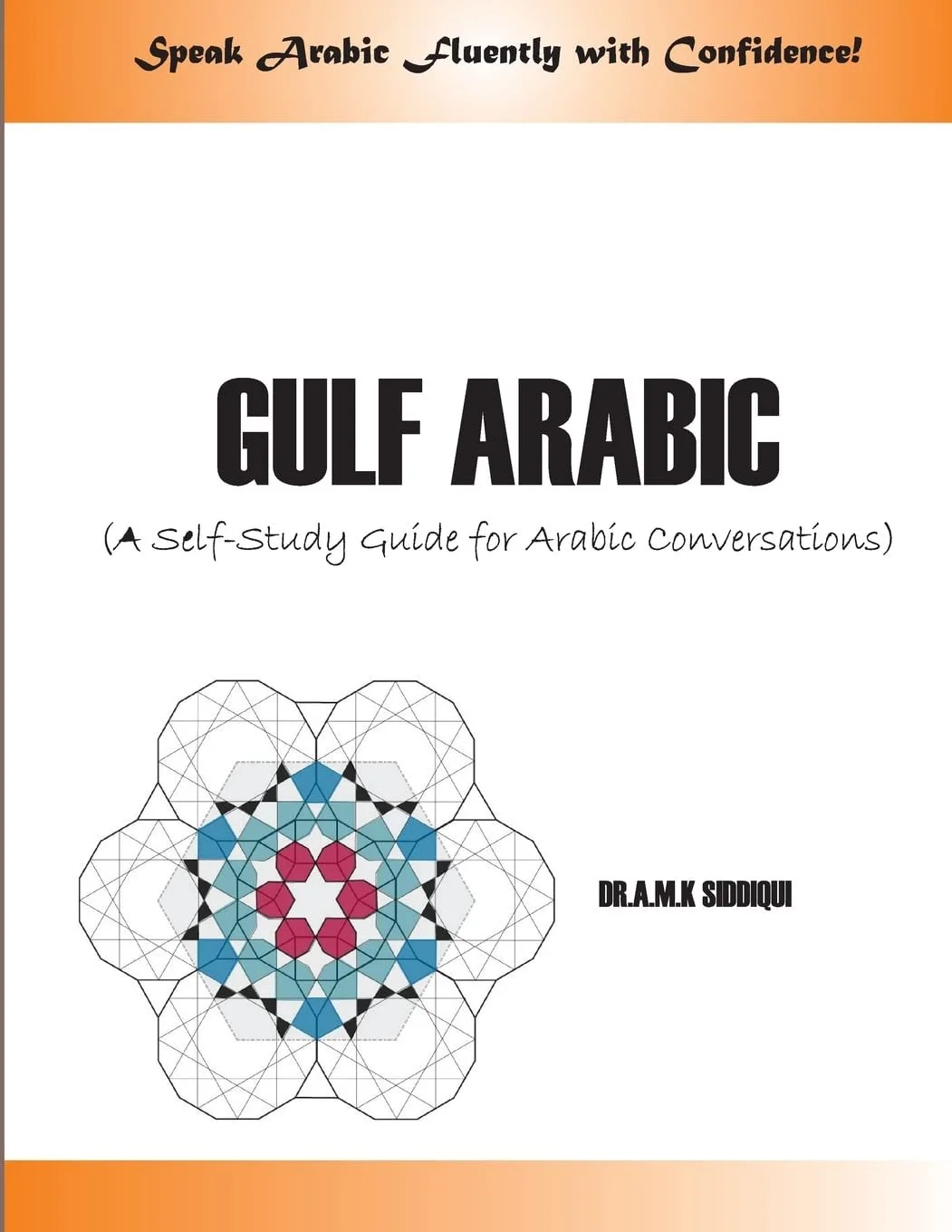
Gulf Arabic: A Self-Study Guide for Arabic conversations
Author: Abu Mazhar Khalid Siddique
ISBN: 9788192819600
Arabic, spoken in 25 countries and the world’s 4th-most used language, is rich in grammar, vocabulary, and scientific depth. With rising global demand, this book offers learners practical colloquial conversations and exercises to build fluency and employment prospects.
-
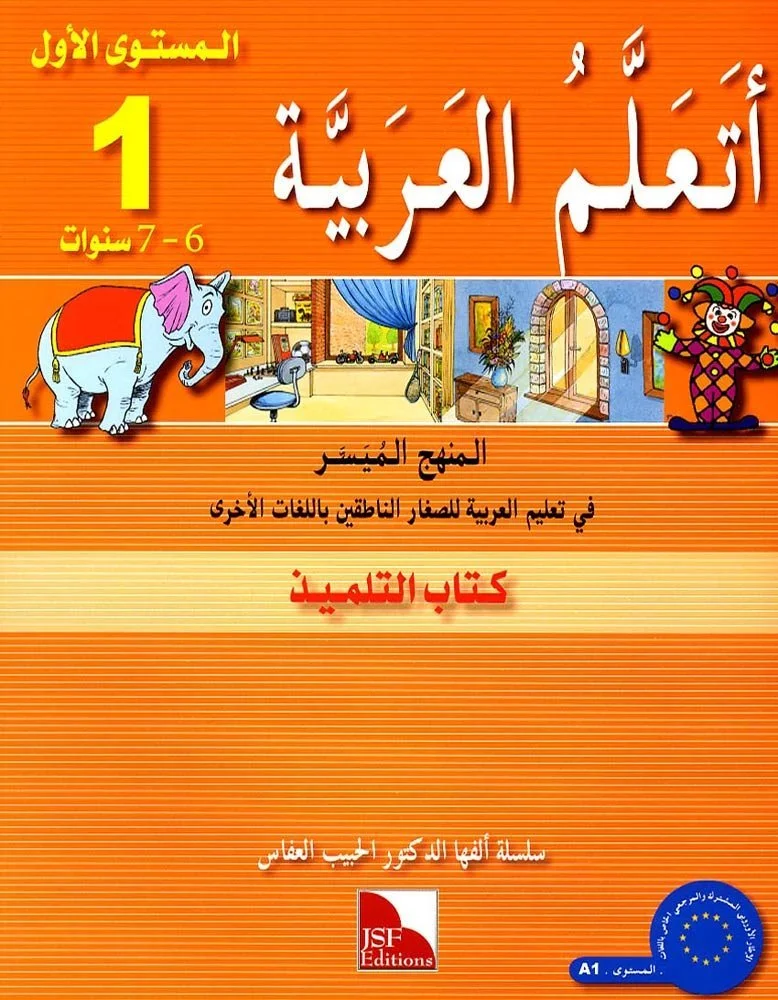
I Learn Arabic Simplified Curriculum Textbook: Level 1
Author: Dr. Al Habeeb Al Affass
ISBN: 9782355400209
I Love Arabic (for ages 6+) introduces the 28 letters of the Arabic alphabet through 28 units with reading passages, dialogues, listening, and writing exercises. Supported by a workbook, handwriting book, and teacher case, it builds vocabulary, fluency, and comprehension.
-
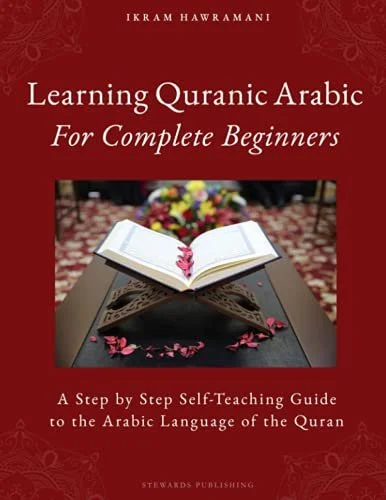
Learning Quranic Arabic for Complete Beginners:
Author: Ikram Hawramani
ISBN: 9781796502404
An easy-to-use and detailed guide on learning Classical Arabic through the Quran.
-

Learning Modern Standard Arabic (MSA) for Complete Beginners:
Author: Ikram Hawramani
ISBN: 979-8328447980
An easy-to-use and detailed guide on learning Modern Standard Arabic (MSA), starting with the alphabet.
-

الشراع المقدس (The Holy Sail)
Author: Abdulaziz Al-Mahmoud
ISBN: 978-9927101670
This novel weaves a tapestry of momentous historical events with stories of love, honor, and nobility, while guiding us around the medieval world of Lisbon, Cairo, Jeddah, and Istanbul. The Holy Sail brings to life a neglected episode of history that impacted not only the region but the world for centuries to come.
-

سؤال وجواب في التراث الشعبي القطري الجزء الأول | 5000 Questions and Answers in Qatari Folklore – Volume One
Author: Noura Mohammed Al-Nama
This two-volume encyclopedia preserves Qatari heritage through 5,000 interactive questions and answers. Volume One (790 pages) defines Qatari colloquial words alphabetically, while Volume Two (707 pages) covers proverbs, riddles, word diminutives, and groupings with detailed explanations. The work aims to celebrate the beauty of the Qatari dialect and safeguard its cultural expressions from fading.
-

سؤال وجواب في التراث الشعبي القطري الجزء الثاني5000 Questions and Answers in Qatari Folklore Part II
Author: Noura Mohammed AL-Nama
A two-volume encyclopedia of Qatari folklore with 5,000 Q&A. Volume One (790 pages) defines colloquial words alphabetically, while Volume Two (707 pages) explores proverbs, riddles, and word forms, aiming to preserve Qatar’s cultural heritage.
-
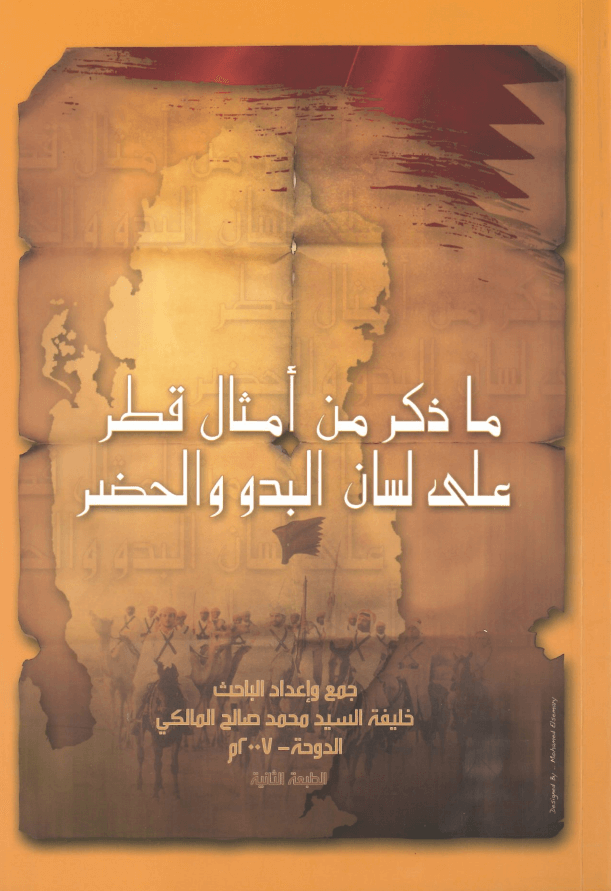
ما ذكر من أمثال قطر على لسان البدو والحضر | Qatari Proverbs as Spoken by Bedouins and Settled People
Author: Khalifa Al-Sayyid Mohammed Saleh Al-Maliki
A book on Qatari folk healing by Khalifa Al-Maliki. It explains cures taken from the Qur’an, people, animals, earth, and sea, with fire used as the final treatment.
-

تاريخ التعليم في الخليج العربي 1913-1971 | History of Education in the Arabian Gulf 1913-1971
Author: Yousef Ibrahim al-Abdullah
A book covering the comprehensiveness of the history of the educational movement in the Arabian Gulf region 1913-1971
-

قطر الحديثة | Modern Qatar
Author: Abdulaziz Abdul Ghani Ibrahim
A history of the Arabian Peninsula highlighting the Gulf’s political, social, and economic fabric. It examines British colonial policy, Ottoman weakness, and how these forces shaped Qatar and its neighbors.
-

الأيام | The Days
Author: Dr. Taha Hussein
A child once driven to despair and suicide rose to become the “Dean of Arabic Literature.” The Days is more than biography: it reflects 20th-century Egypt’s ignorance, his journey from rural life to Al-Azhar, the University, then France, returning to spread knowledge and light.
-

عودة الروح | The Return of the Soul
Author: Tawfiq al-Hakim’
Tawfiq al-Hakim’s The Return of the Soul is more than a household tale or romance; it mirrors Egypt in 1919, where hardship forged unity. Through one family’s struggles, the novel symbolizes the Egyptian people’s enduring spirit, collective identity, and bond across history.
-

رجال في الشمس | Men in the Sun
Author: Ghassan Kanafani
Ghassan Kanafani’s Men in the Sun follows three Palestinians who suffocate while hiding in a water tanker to escape. The novel symbolizes exile, silence, and the consequences of inaction, reflecting the broader Palestinian struggle.
-
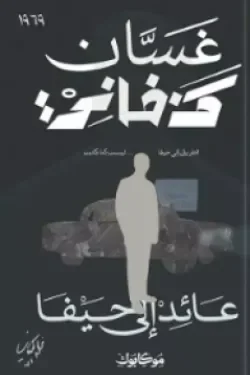
عائد إلى حيفا | Returning to Haifa
Author: Ghassan Kanafani
The novel devotes a large space to the golden concept of patriotism and citizenship, and through associations, it reveals the harsh circumstances that led to the tragedy of Said’s family, and presents a different concept from the prevailing one of the meanings of homeland in Palestinian discourse.
-
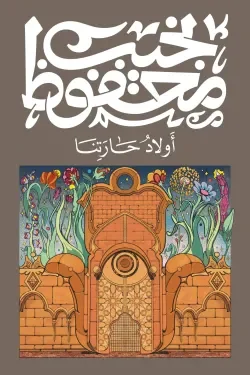
أولاد حارتنا | Children of the Alley
Author: Naguib Mahfouz
Naguib Mahfouz’s Children of the Alley (1959) tells of Gabalawi and his descendants, who struggle over inheritance while thugs dominate their neighborhood. Through this allegory, the novel explores power, injustice, faith, and the enduring hope of liberation.
-
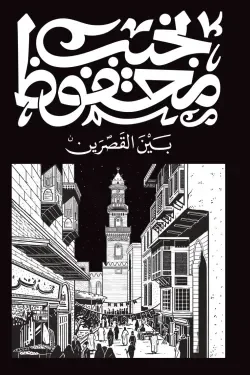
بين القصرين | Between the two palaces
Author: Najib Mahfouz
The first part of Naguib Mahfouz’s famed Cairo Trilogy (1956) portrays the Abd al-Jawad family during WWI and the 1919 Revolution. At its center is al-Sayyid Ahmad, strict at home yet indulgent outside, a figure whose double life became iconic in Egyptian culture.
-

موسم الهجرة إلى الشمال | Season of Migration to the North
Author: Tayeb Salih
Season of Migration to the North is the novel that elevated Tayeb Salih to global literary fame. It was ranked among the top 100 Arabic novels of the 20th century and selected by the Norwegian Book Club as one of the 100 greatest novels in history.
-

مدن الملح | Cities of Salt
Author: Abdelrahman Munif
Cities of Salt by Saudi novelist Abdelrahman Munif is a five-part epic hailed as one of the greatest Arabic novels. Praised by critics from Edward Said to the Chicago Tribune, it captures the upheaval of Bedouin life with the discovery of oil, tracing sudden wealth, cultural disruption, and lasting transformation. -

يوميات نائب في الأرياف | Diary of a Country Prosecutor
Author: Tawfiq al-Hakim
Tawfiq al-Hakim’s Diary of a Country Prosecutor is a landmark of modern Arabic literature. Set in 20th-century rural Egypt, it exposes peasants’ suffering under poverty, ignorance, and disease. Blending satire and vivid realism, it offers both sharp social critique and unforgettable storytelling.
-

الباب المفتوح | The Open Door
Author: Latifa al-Zayyat
Layla, a spirited young woman in 1940s–50s Egypt, defies a patriarchal society that demands her silence. She fights for personal freedom and joins the national struggle for independence. Through love, setbacks, and triumphs, her story intertwines private life with a nation’s turbulent history.
-

ذاكرة للنسيان | Memory for Forgetfulness
Author: Mahmoud Darwish
In this book, Mahmoud Darwish blends poetry and prose to capture a day from the 1982 siege of Beirut. Written in a tense, lyrical style, it offers both narrative and reflection, preserving the anguish and resilience of that long summer day.
-

ذاكرة الجسد | Memory in the Flesh
Author: Ahlam Mosteghanemi
Published in 1993, this bestselling novel follows Khaled, an Algerian painter wounded in the war, who falls in love with the daughter of his martyred commander. Their impossible romance intertwines with a Palestinian fighter’s fate and post-revolution Algeria’s corruption. Winner of the 1997 Naguib Mahfouz Prize. First woman to top Arabic bestseller lists
-

باب الشمس | Gate of the Sun
Author: Elias Khoury
In Gate of the Sun, Elias Khoury tells of exile, camps, and fragile lives bound by loss and hope. Through Nahila, Shams, and the dying patient—figures of love, death, and resistance—the novel captures the Palestinian struggle in haunting, poetic silence.
-

امرأة عند نقطة الصفر | Woman at Point Zero
Author: Nawal El Saadawi
Nawal El Saadawi’s Woman at Point Zero tells the story of Firdaus, awaiting execution in a Cairo prison for killing her pimp. Through her confession to a psychiatrist, she recounts childhood abuse, forced marriage, exploitation, and finally murder—embracing death as her only freedom.
